E-Textiles and Wearables II
This week's assignment was to integrate a soft circuit with an actuator. I chose to start working on my final project, based on what I had done for week 5, my soft pressure sensor. For this assignment, I used my soft sensor as an analog input for a Lilypad Arduino USB controller.
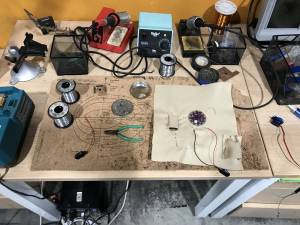
I used the same copper coated vinyl and pressure sensitive fabric for making my sensors.
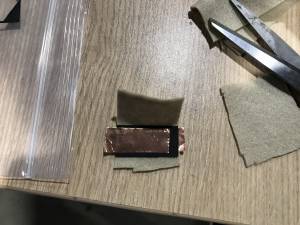
Because we needed to try soft-hard connections, I used solderable copper thread, as a way of connecting the circuit. Here's a diagram of what it should look like.
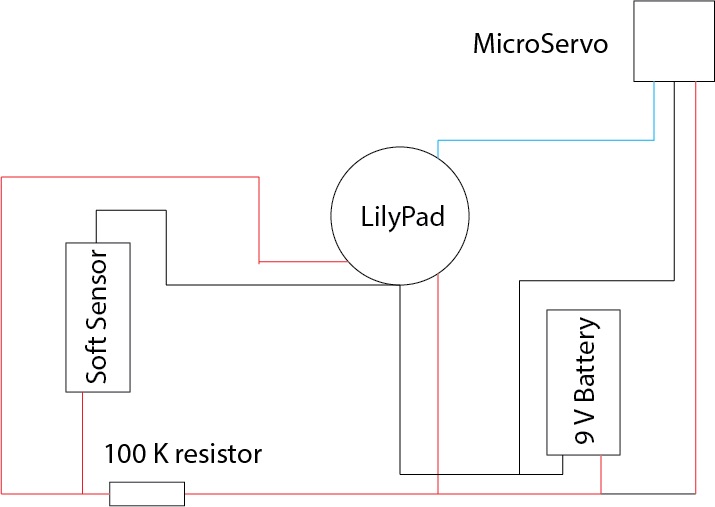 Once I had an idea of the schematic, I started sewing and soldering the tracks. For me, the hardest part was working with the conductive thread, because it is composed of a lot of small copper fibers which intertwine amongst each other while sewing, making it incredibly hard to sew.
Once I had an idea of the schematic, I started sewing and soldering the tracks. For me, the hardest part was working with the conductive thread, because it is composed of a lot of small copper fibers which intertwine amongst each other while sewing, making it incredibly hard to sew.
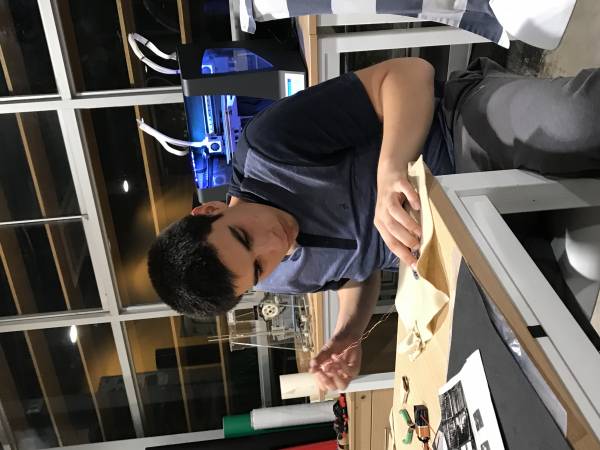
Here's a picture of the fully sewn circuit:
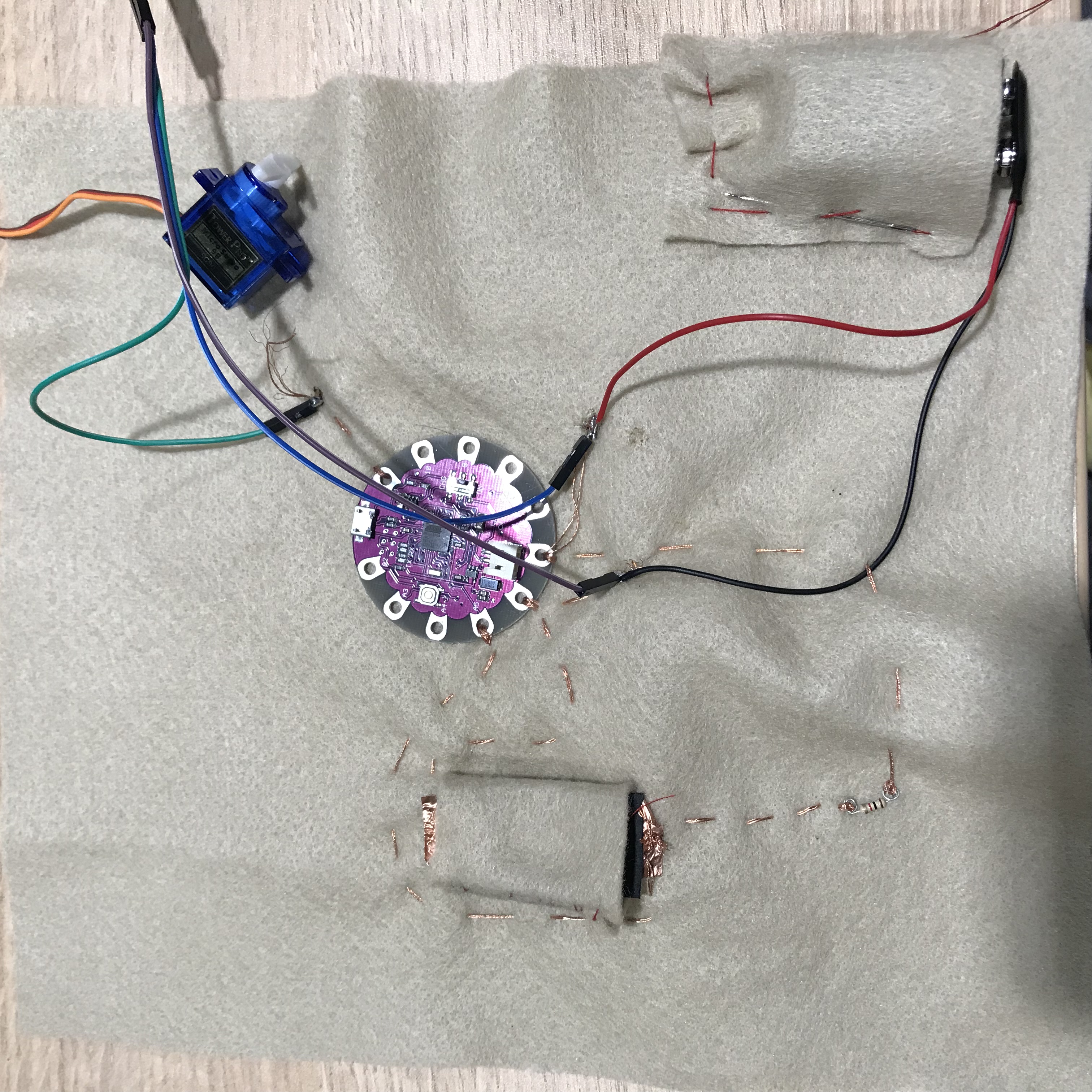
Alexandra and I, we are both working with motors in this assignment, because we want to compare the best kind of motor for our final project. I am testing micro servomotors, while she is testing DC motors.
The benefit of working with a lilypad is that it allows me to program it as an Arduino, within the Arduino environment. In order to program the servo, I needed to install the “Servo.h” library from the Arduino Library manager. Here's the code I'll be using for the soft circuit:
#include <Servo.h> Servo Myservo; int degree; int Pressure =A5; void setup() { // put your setup code here, to run once: Serial.begin (9600); Myservo.attach(11); Myservo.write(90); } void loop() { // put your main code here, to run repeatedly: analogRead(Pressure); degree=map(Pressure,0,1023,0,180); Serial.println(Pressure); Myservo.write(degree);
The servomotor changes position according to the pressure applied to the sensor.
Issues
Even though this assignment is useful for my final project, it wasn't my original plan. I had been trying to create a soft circuit using the vinyl cutter and a small PCB. I generated the schematics in Eagle.
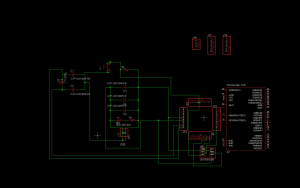
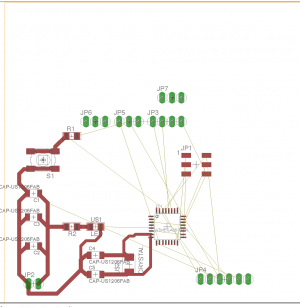 The problem was that the machines in the lab had broken down, and I ended up having to work on the aforementioned circuit. I still plan on implementing this idea, because I have to generate a board like this one for my final project with Alexandra. so I'll update my advances on this page also.
The problem was that the machines in the lab had broken down, and I ended up having to work on the aforementioned circuit. I still plan on implementing this idea, because I have to generate a board like this one for my final project with Alexandra. so I'll update my advances on this page also.